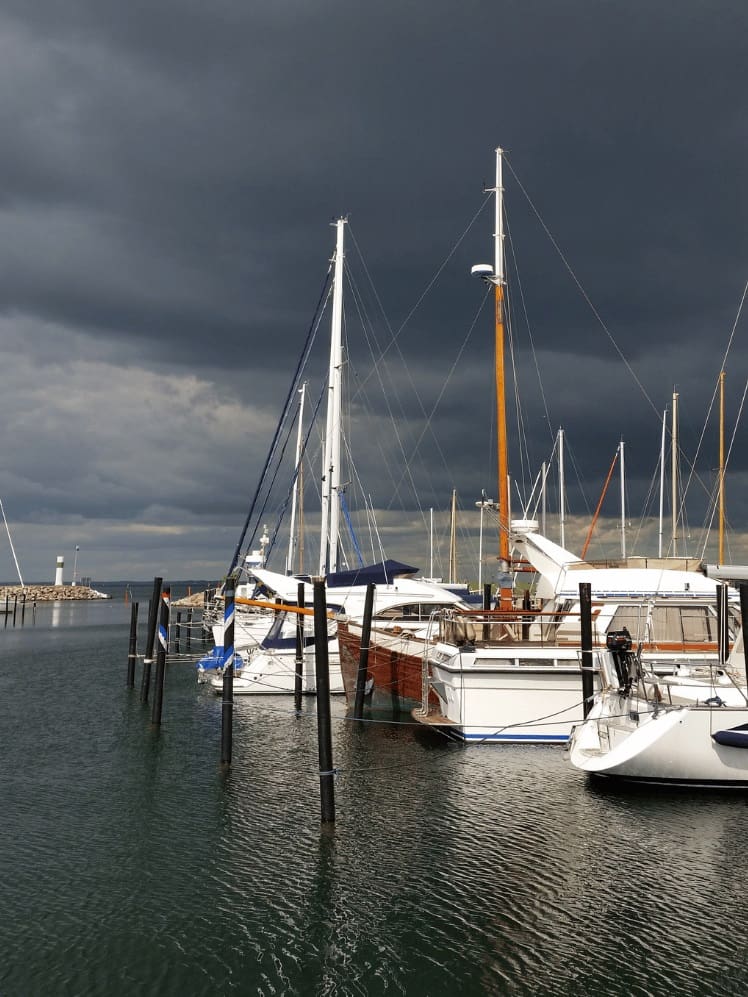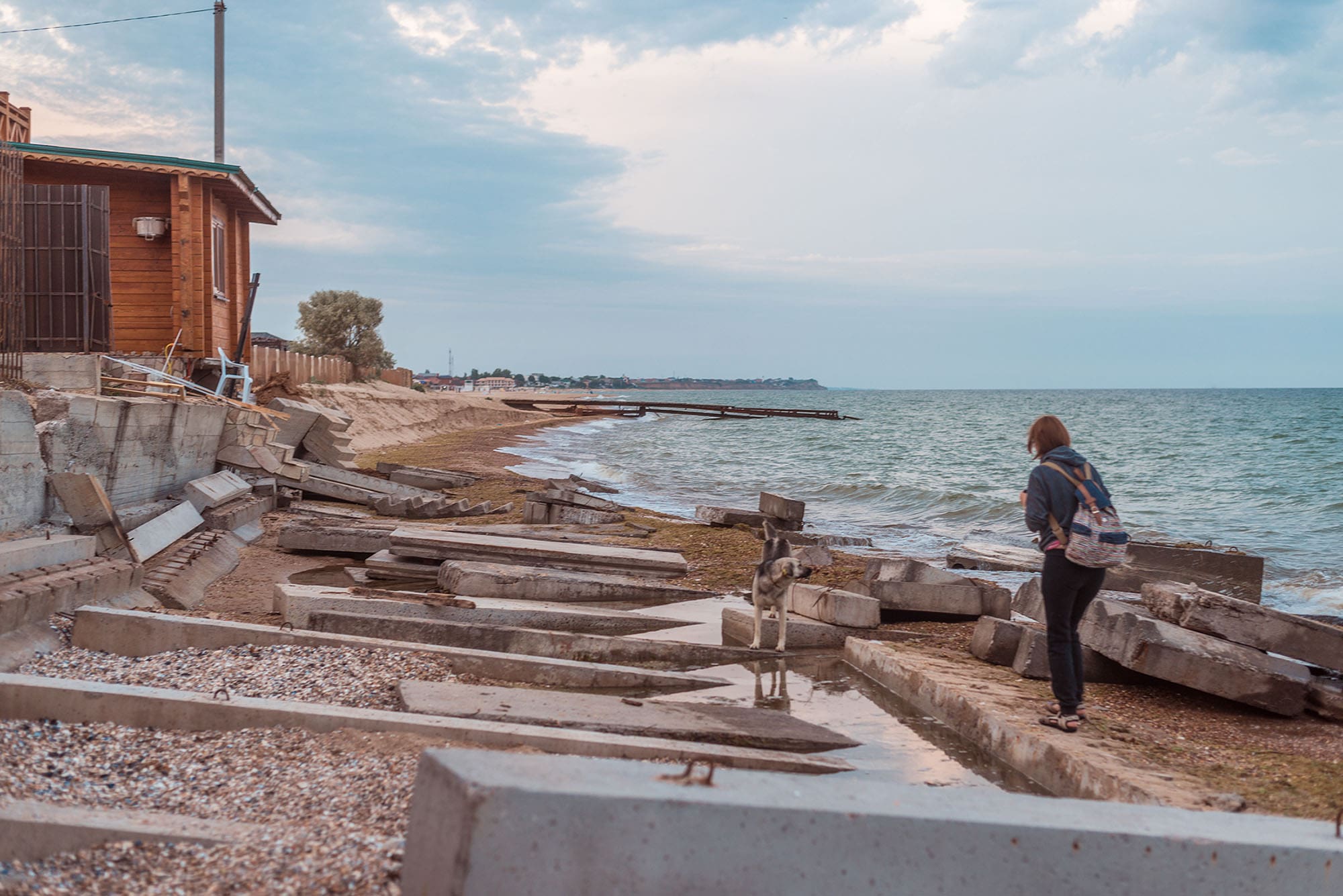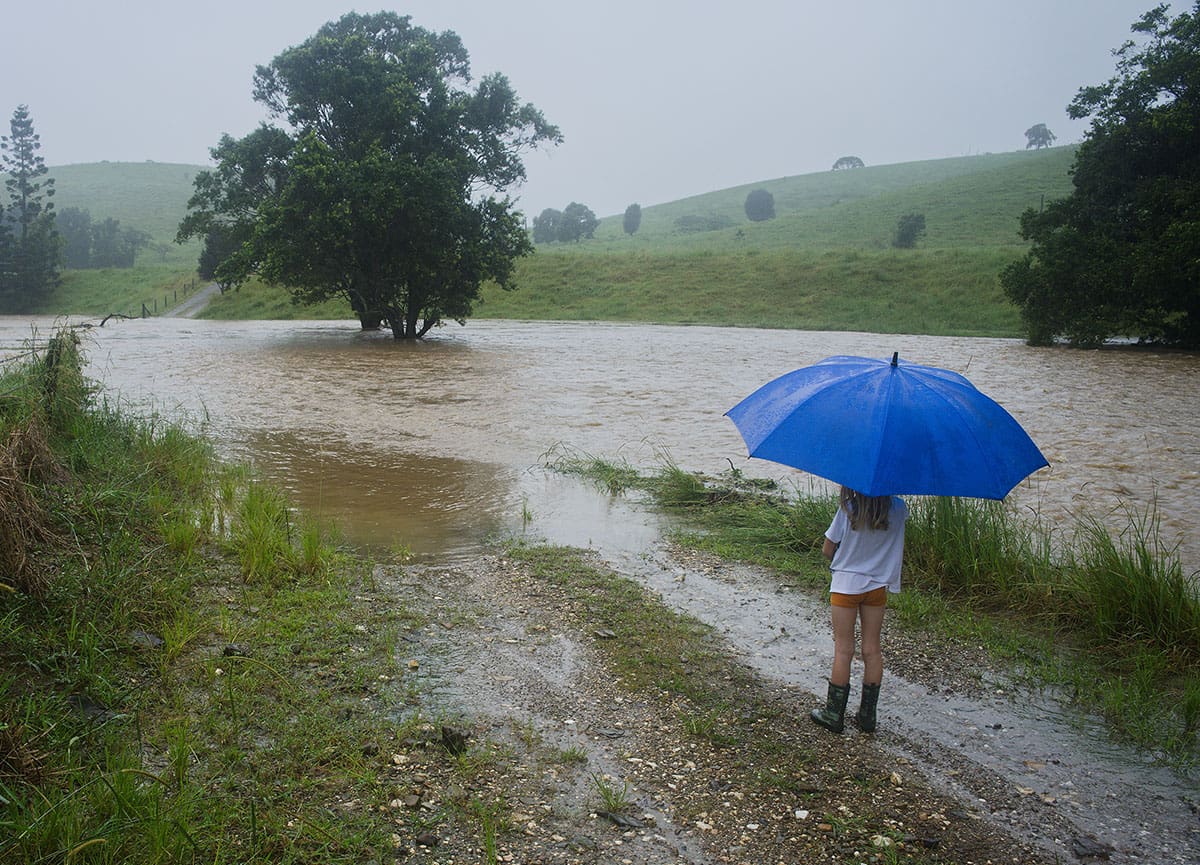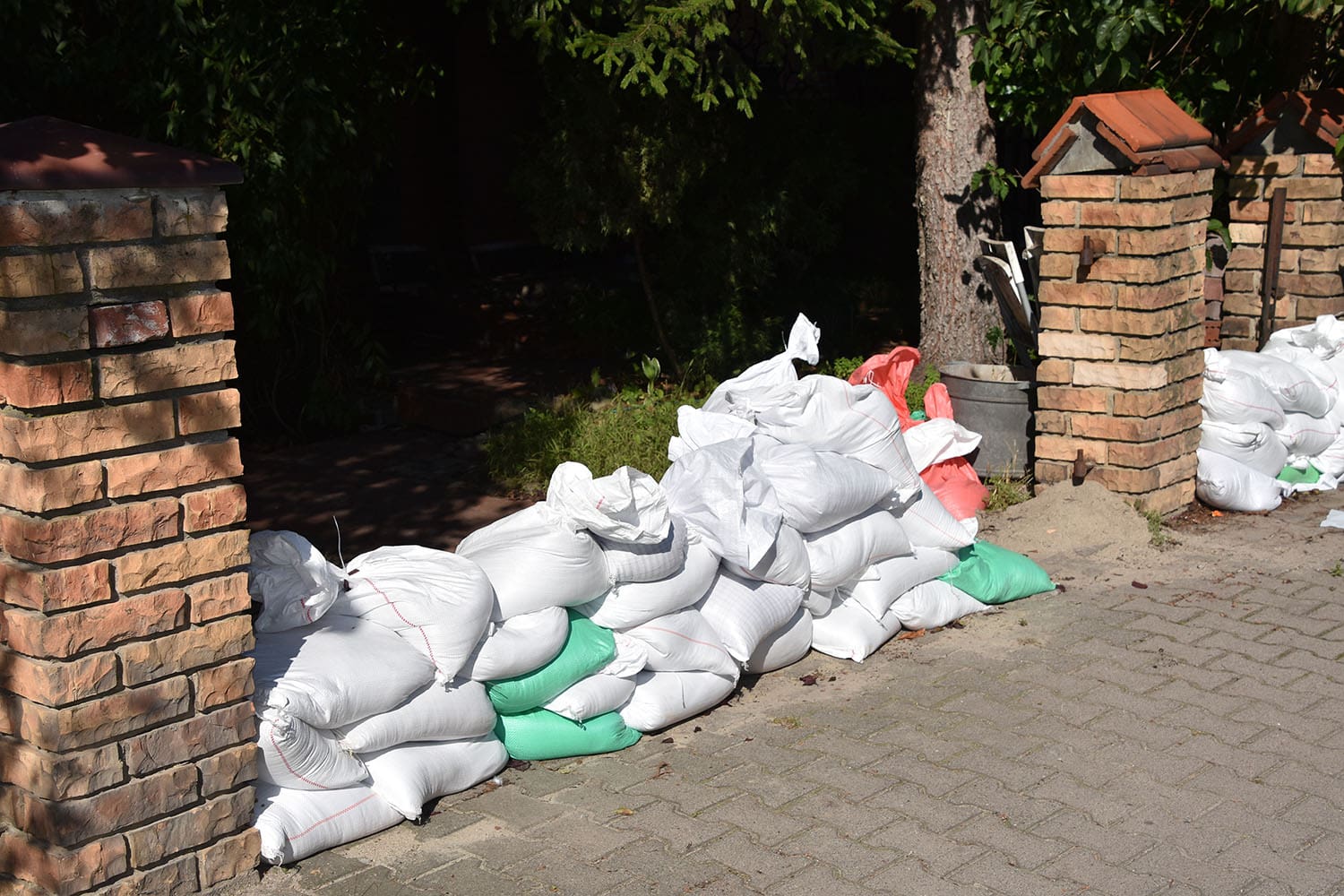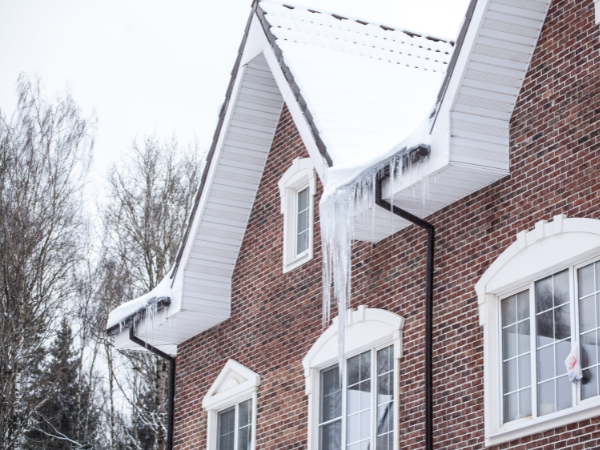Before a storm hits
Prepare your plan
- Develop a detailed plan of action for your vessel in advance. Share your plan with a reliable person who can execute it in your absence. If you are an absentee owner, formalize this arrangement with a contract.
- Identify a safe, accessible destination, preferably in a hurricane-proof storage facility or garage. Negotiate the storage contract in advance.
- If not using a trailer, negotiate contractually for a boatyard to haul-out at a facility equipped to accommodate your boat and not endangered by storm surge.
- Specifically identify and assemble needed equipment and supplies. Keep them together and practice your plan to ensure it works before the hurricane season.
- Lifts: if you must leave your boat on a lift, take the following precautions:
- Securely strap boat to the lift
- Remove all portable equipment, canvas, etc.
- Tape all hatches and electronics covers
- Check bilge pumps & batteries
- Raise the lift to the highest safest point and secure the base of lift to the pilings to minimize sway
Prepare your documentation
- To make the claims process smoother in the event your watercraft sustains damage, take pictures or video of the vessel (inside and out).
- Maintain an inventory of both the items removed and those left on board. Items of value should be marked so they can be readily identified.
- Consolidate all records including title, insurance policies, a recent photo of the vessel, boat registration, equipment inventory, and the lease agreement with the marina or storage facility.
- Keep important phone numbers in a safe place, such as U.S. Coast Guard, Harbor Master, National Weather Service.
- Check your lease or storage rental agreement with the marina or storage facility; Learn the hurricane procedures directly from the dock-master, know your responsibilities and liabilities.
- Keep a copy of the hurricane plan submitted to your insurance company.
When a hurricane or potential flooding is coming
- Review your evacuation plan and ensure you have the necessary resources to activate your plan.
- If you have a captain and crew, consider any lodging or travel arrangements that may be necessary.
- Remove all portable equipment such as canvas, sails, electronics, cushions, biminis and roller furling sails. Secure everything you are unable to remove such as tillers, wheels and booms.
- Personal safety is always the highest priority, do not remain aboard in life threatening conditions.
- Boats remaining in a marina or private berth:
- Double all lines.
- Rig crossing spring lines fore and aft.
- Attach lines high on pilings to allow for tidal rise or surge.
- Make sure lines will not slip off pilings. Inspect pilings and choose those that appear the strongest and tallest, and are installed properly.
- Fully charge the batteries and check to ensure their capability to run automatic bilge pumps for the duration of the storm. Consider backup batteries. Shut off all devices consuming electricity except the bilge pumps and disconnect shore power cables.
- Hauling: The best course of action is to haul your vessel out of the water and move it to a safe location as far from tidal waters as possible, and away from trees and other vessels that may topple.
After a hurricane or flood
- Listen to local officials for updates and instructions.
- Avoid walking or driving through flood waters. Just six inches of moving water can knock you down, and one foot of fast-moving water can sweep your vehicle away.
- Avoid flood water as it may be electrically charged from underground or downed power lines and may hide dangerous debris or places where the ground is washed away.
- Photograph or video the damage to your property to assist in filing an insurance claim.
- Do what you can to prevent further damage to your vessel
- Water is often contaminated with sewage and chemicals and can hide objects, such as metal and glass or dangerous animals, such as snakes or alligators.
- If there is evidence of theft or vandalism, file a police report. Note the report number and obtain a copy of the incident report.
Tips to speed up the claims process
- Send photos of damage, including photos before damage if possible, to adjuster.
- Create a list of damaged property, including description, cost and receipt if possible.
- Keep a journal of your emails, calls with insurance companies and adjusters so you can proactively manage the process.
- Have your policy information when you call insurer, including insurer, and policy number.
If you have loss or damage
- File the Claim with your insurer as soon as possible: Claims are handled in the order they are received so getting the claim reported to the insurer is key. Once reported, we can help guide you through the process. We have licensed claims professionals on staff.
- Don’t Know Your Insurer? Contact us at 813.984.3200 (after hours select option 9) or call your Relationship Manager.
- Don’t Know Your Insurer’s Claim Reporting Contact Information? Click here. If your insurer does not appear on the list, contact us at 813.984.3200 or call your Relationship Manager.
For more information
We’re ready to help when you are. Get in touch and one of our experienced Baldwin advisors will reach out to have a conversation about your business or individual needs and goals, then make a plan to map your path to the possible.
This document is intended for general information purposes only and should not be construed as advice or opinions on any specific facts or circumstances. The content of this document is made available on an “as is” basis, without warranty of any kind. The Baldwin Insurance Group Holdings, LLC (“The Baldwin Group”), its affiliates, and subsidiaries do not guarantee that this information is, or can be relied on for, compliance with any law or regulation, assurance against preventable losses, or freedom from legal liability. This publication is not intended to be legal, underwriting, or any other type of professional advice. The Baldwin Group does not guarantee any particular outcome and makes no commitment to update any information herein or remove any items that are no longer accurate or complete. Furthermore, The Baldwin Group does not assume any liability to any person or organization for loss or damage caused by or resulting from any reliance placed on that content. Persons requiring advice should always consult an independent adviser.
